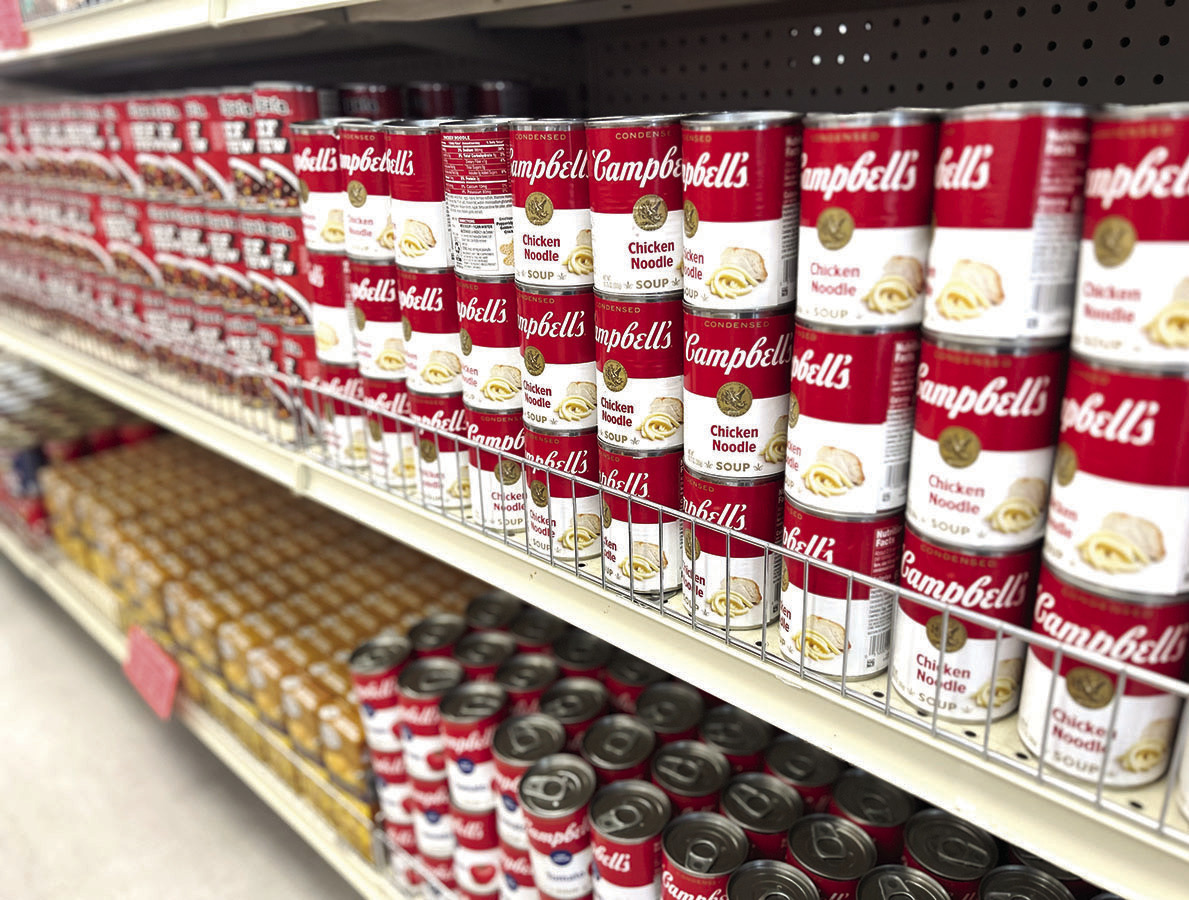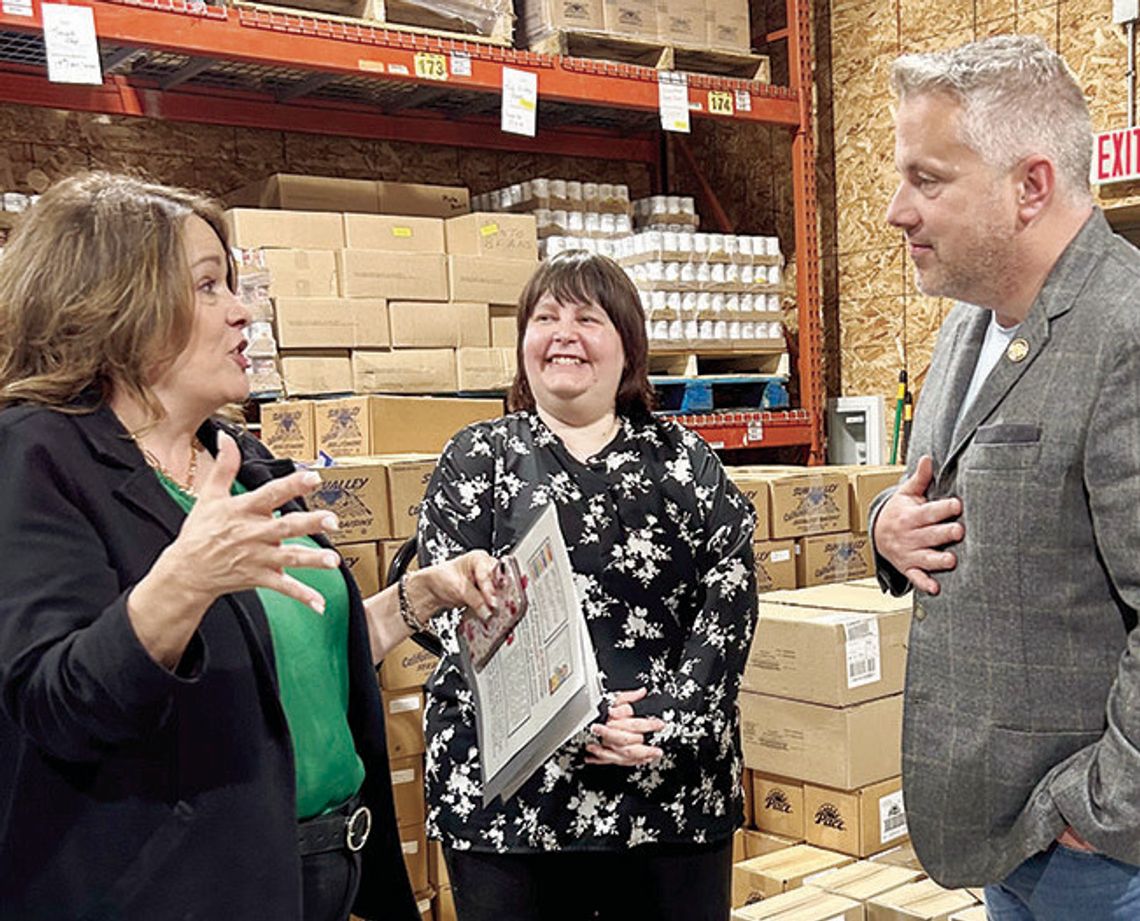MACOMB – The need for Supplemental Nutrition Assistance Program (SNAP) has increased to 42 million in 2025, up nearly 20 percent from just six years ago. Eric Sorensen, who is a member of the U.S. House of Representatives, whose district includes Macomb, recently visited the Western Illinois Regional Council (WIRC) to discuss food insecurity and the threats to SNAP, food banks and social services nationwide.
The federal administration's budget proposal, which passed in the House by one vote (215-214) and is now being debated in the Senate, if enacted, will cut more than $290 billion from the SNAP, and place numerous other social service programs in jeopardy. Sorensen voted 'no,' while Rep. Mary Miller, whose district covers Macomb, cast a 'yes' vote for the budget, noting she 'was proud to cast my vote in support of President Trump’s One Big, Beautiful Bill.'
Illinois Congressperson Darin LaHood of Peoria also voted in support of the budget bill. Nearly 2 million Illinoisans receive SNAP benefits. The poverty rates of counties falling with Miller's and LaHood's districts are higher than the national poverty rate of 11.1 percent. The poverty rate in McDonough County is 8.8 percent higher than the national average.
'We're the wealthiest country in the world, yet we have a big problem with so many people going without food,' Sorensen said. 'The passage of the bill in the House means that more people will need to use food banks and food pantries because they will be unable to feed their family because of cuts to SNAP, and our legislature will not do what's right.
We cannot let people fall through the cracks. What are our American values? Our legislators have a choice to do what's right, and it's not about politics, it's about values. For me, making our communities better, but for others it's about cutting food and health benefits so the wealthy get a break. It doesn't make any sense.'
During his May 23 visit to the WIRC, Sorensen toured the food pantry, and spoke with employees, volunteers, clients and media. Sorensen shared he has visited more than a handful of food banks/pantries in his district. More than 2,000 McDonough County residents used the pantry last year, according to WIRC Good Food Pantry Manager Kelly Shiraki. In March, the Community News Brief talked to Shiraki about the higher prices for grocery items and what is in store for the county's food pantry. The Good Food Pantry continues to serve approximately 800 individuals each month, with 30–40 new households enrolling monthly, she explained.
In the WIRC service region, one in five residents relies on SNAP (food stamps/EBT) to meet basic nutritional needs, added WIRC Executive Director Stacy Nimmo.
'Last year, our food pantry served the equivalent of 10 percent of McDonough County’s population,' she shared.
'These aren’t strangers—they are our friends, our neighbors, and our coworkers.'
River Bend Food Bank, which is headquartered in the Quad Cities, delivers around 20,000 pounds of food each month to the Macomb pantry. Administrators have told the pantries they serve should expect to 'feel the pinch from the cuts in food commodities' around August. However, the food bank, as of April 4, had already lost 7 percent of its food sources, which translates to 264,070 meals (approximately 217,000 pounds of food in Illinois and 100,000 pounds of food in Iowa). Over 20 million meals are distributed from the River Bend warehouses to hundreds of food pantries in the Food Bank's network every year. Loaves & Fishes of Macomb, the organization provided over $14,000 in grocery vouchers for 456 families just last month alone.
Besides SNAP and Medicaid being in jeopardy, other social service programs provided through the WIRC have been – or will be – impacted, Nimmo pointed out.
'Cuts at the federal level have a direct and harmful impact on essential programs that serve our most vulnerable neighbors.
For example, reductions to LIHEAP (Low-Income Home Energy Assistance Program) and the Weatherization Assistance Program mean fewer households will receive help staying warm in the winter or making their homes more energy-efficient,' Nimmo explained. 'Victim services, which rely heavily on federal VOCA (Victims of Crime Act) funding, are also at risk—leading to fewer resources for survivors of domestic violence, sexual assault, and other crimes.
Even smaller but important programs, such as recycling, face uncertainty as local governments respond to reduced federal and state pass-through funding. These aren’t just line items in a budget—they're vital services for real people.'
To make up any shortfalls or decreases in federal funding, WIRC is taking a multi-pronged approach.
According to Nimmo, the organization is applying for new state and private grants, strengthening partnerships and expanding its fundraising efforts.
'We're also joining our peers across the state and country to advocate for elected officials to protect and sustain funding for core safety net services. Still, while local generosity is essential, it cannot replace the scale or long-term consistency of federal funding,' she stressed. 'Without those foundational dollars, especially from programs like the Community Services Block Grant (CSBG), our ability to meet the growing need is compromised.'
WIRC is already seeing the impact as the number of individuals seeking assistance has increased.
Nimmo said their team is doing everything possible to meet the demand, such as streamlining the organization's processes, improving coordination with partner organizations and doing more with fewer resources.
'But as benefits are reduced and more families fall through the cracks, we know we’re being asked to do more at exactly the time when funding is less certain,' she concluded. 'We will continue to do all we can, but it will take a whole-community effort to respond effectively.'
What can the average citizen do to help? Both Sorensen and Nimmo said: speak up. Contact state and federal lawmakers, and let them know the importance of funding programs like SNAP and Medicaid, along with Community Services Block Grants (CSBG), which, Nimmo said, has been a cornerstone of local anti-poverty efforts, with a long history of bipartisan support, but is now at risk of being defunded.
Find legislators at the state and federal level by searching here: tinyurl.com/FindILPoliticians 'You can also help by donating, volunteering and raising awareness,' Nimmo added. 'The more people who understand the realities our neighbors face, the stronger our collective response can be.'

The WIRC Good Food Pantry serves 800 people each month, with 30-40 new households enrolling monthly.









